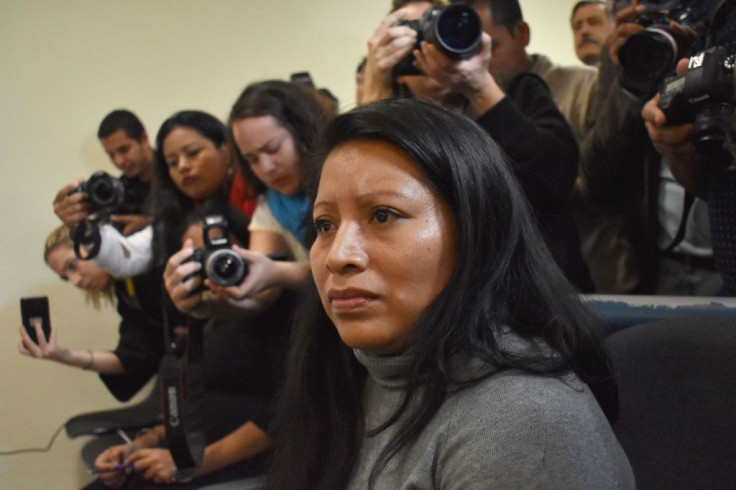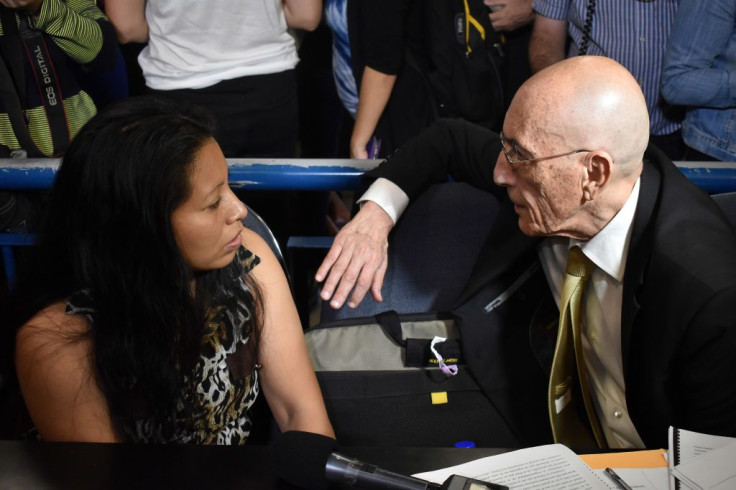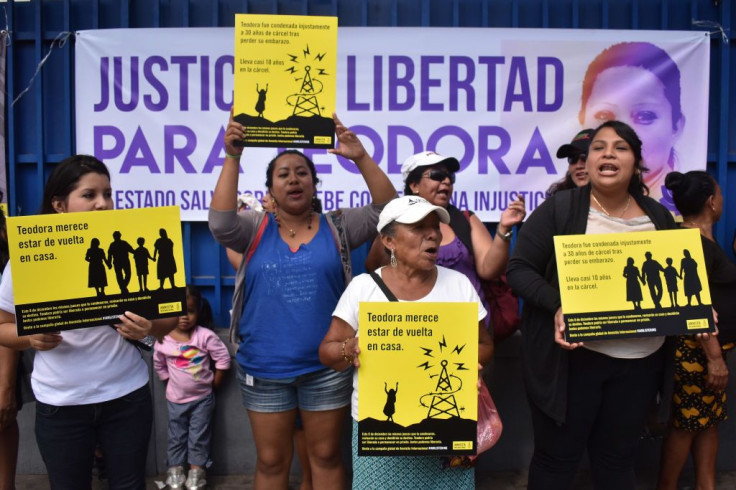
Sad was the moment when the sentence of 30 years in prison for the Salvadoran Teodora Vásquez was ratified by the judge. Vásquez was sentenced to 30 years in prison after having a miscarriage in El Salvador - where abortion is a crime under any circumstance.
El Salvador is a country where women have been routinely locked up simply for having complicated pregnancies. El Salvador still has a total ban on abortion, as a consequence, women who are seeking medical help for pregnancy-related complications can be convicted of breaking the law, and even miscarriages and stillbirths can be treated as crimes.
A member of Amnesty International Norway - an NGO focused on human rights, spoke with Latin Times about the fate of Teodora and what's the next step to find justice for her and other 17 women, who between 1999 and 2011 were sentenced to up to 40 years in jail following reported miscarriages, most on charges of aggravated homicide.
Teodora’s lawyer Víctor Hugo Mata will present documents on December 20 with the necessary information to ensure she has justice after her second hearing, said Patricia Kaatee, Policy Adviser of Amnesty International Norway. It’s important to point out that the judge conducting the fresh hearing was the same prosecutor who sent her to prison 10 years ago, when she was only 24 years old.

“We will continue our fight in order to change the law in El Salvador,” said Kaatee to Latin Times. “We demand justice for Teodora and for women in her circumstance. We have to remember Teodora is one of many.”
Amnesty International members reported from El Salvador that after the hearing Teodora’s family was devastated. “Her family was expecting her release and the prepared a homecoming party to celebrate her freedom,” said Kaatee. “When the judge confirmed the sentence the family was crying silently.” Our informer also confirmed that people at court were holding and hugging each other, plus covering their mouths in response of the verdict.
According to Teodora’s lawyer Víctor Hugo Mata, she said she was prepared for this outcome, and she will stay strong and still has hopes that one day she will come out of prison. “Teodora said to the lawyer’s assistant, Katia, that the judge doesn’t know what really happenned the day she had the miscarriage. They weren’t in the bathroom with her,” said Patricia Kaatee. “Teodora said to Katia ‘I know that I'm innocent’.”

Despite the outcome of Teodora’s hearing, the strategy hasn’t change in Amnesty. “Expert witnesses validated that the child died before birth,” said Patricia. “That’s a sufficient reason to release her and we will seek justice.”
While no official statistics are available, Amnesty International estimates that at least five more women currently await sentencing on similar pregnancy-related charges. Find below a film based how the world is still waiting for justice for all women in El Salvador.
Amnesty International Norway will keep spreading the word like they did with the online campaign that was intended to tell the story of women’s rights in El Salvador through the website I Am Listening.
For weeks distress signal from El Salvador broadcasted by Amnesty International on the Norwegian FM-band went viral after hitting Facebook and Twitter. On December 7, the hijacked signal reached La Prensa Grafica, one of El Salvador's biggest newspapers. The distress signal was broadcasted with a dramatic message in which Teodora's sister asked for her freedom. The night of December 7 in Oslo, a group of people took to the streets with their old FM-radios as an act of solidarity and amplify the message.
Teodora was 24 years old and nine months pregnant when she felt a pain in her abdomen. After calling emergency services, she started bleeding and lost consciousness before help arrived. Vásquez, later found herself surrounded by police officers who accused her of murdering her baby by inducing an abortion. She was handcuffed and detained. Abortion has been banned in all circumstances since 1998 in El Salvaror; it is reported than at least 19 women are serving long prison sentences after suffering obstetric complications during pregnancy.
According to Teodora's mother, she is positive about the future. Amnesty reported that she is healthy and well, and has been taking classes inside the prison. Her dream is to one day go to university and get a job. But her biggest wish for the future is simple: to be reunited with her 12-year-old son and loved ones.
© 2024 Latin Times. All rights reserved. Do not reproduce without permission.





